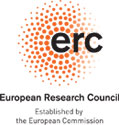EU-project: Understanding Intergenerational Transmissions (UNITRAN)
-A Cross-Disciplinary Approach
 We know that children resemble their parents with regard to socioeconomic characteristics such as
We know that children resemble their parents with regard to socioeconomic characteristics such as
- Education
- Income
- Health
The problem is that we do not know why this is the case.
Interdisciplinary project
The UNITRAN project combines ideas from sociology and economics in an effort to better understand the processes that lead to intergenerational similarities in socioeconomic outcomes. The project is cross-disciplinary and seeks to combine the best sociology and economics has to offer. Economics offers formalized mathematical models which describe processes of intergenerational transmissions, while sociology offers insights into the types of endowments, resources, and behaviors that are transmitted from parents to children.
Research with a new approach
The scientific objective of the project is to formulate a new and better theoretical approach to analyzing intergenerational transmissions. Which endowments and resources do parents possess (for example, genes and economic and cultural resources), and through which behaviors are these traits transferred to children? Answers to these questions are crucial for designing policies that equalize life chances for children who grow up in disadvantaged families.
In addition to theoretical ambitions, the project also empirically analyzes process of intergenerational transmissions and their consequences. Among other things, the project will analyze how cultural skills, for example knowing how present academic arguments in way that impresses teachers, are transferred from parents to children and provide children with a comparative advantage in school.
Financing
The UNITRAN project is funded with a Starting Grant worth DKK 10.2 million through European Research Council (ERC). The Starting Grant program is part of the ERC’s elite researcher program which aims to promote research of the highest quality.
The principal investigator Mads Meier Jæger is a professor at the Department of Sociology. The project also includes two PhDs, two post docs, and two affiliated senior researchers. The project is managed by the Department of Sociology.
